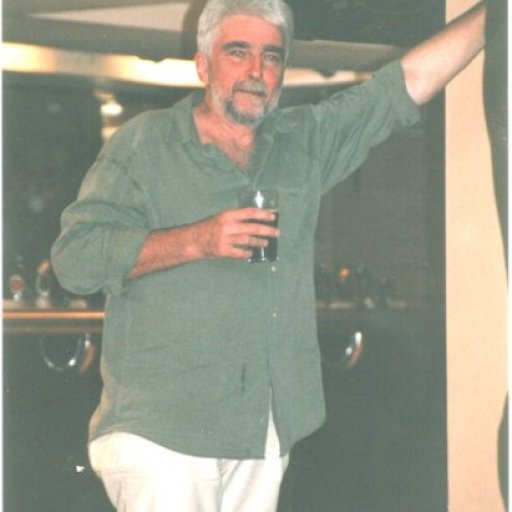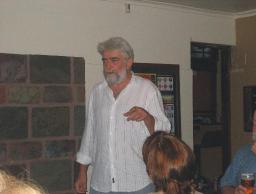

@self-tort
Six O'Clock Swill

Back in times before I was legally able to drink (way back), our licensing laws provided that hotels had to shut at 6pm. Women weren’t allowed in tbe bars (unless they were serving beer).
Notwithstanding the undoubted “good intentions” in attempting to limit access to alcohol, the reality was that pubs were packed to the gunnels each afternoon with blokes wanting to throw as much amber liquid down their throats as time would allow.
The era became known as the “Six O’Clock Swill”
During my time at uni I worked in a sheep skin/cow hide factory. The laws had been liberalised by them but I starkly remember each lunchtime going up to the pub with my mates and devouring 4 schooners of beer in an attempt to eradicate what had gone before and what was likely to occur thereafter.
“Six O’Clcok Swill” was the first song I recorded as a solo artist. A “full production” version was included in my original CD “N.I.C” and I recorded an acoustic version for inclusion in my soon to be released “A Tort Stripped Bare” acoustic CD.
In January, 2008 I attended a seminar given by Pat Pattison from Berklee U (don’t tell Rapster, he’s got a thing about Berklee). It was the most instructive two days I’ve ever been involved in. Pat is a wonderful communicator. At the lunch break on the first day I rang my wife and said words to the effect of: “I can’t believe it. I’ve learned more in the last 2 hours about songwriting than I’ve learnt in the last 30 years”.
After imparting his wisdom to us, Pat devoted the afternoon session of the second day to giving critiques on the work of those participating. I chose to do this song, even though Pat had warned against doing a “song that you’ve released on a CD”. I was happy with the original version but was interested to see if there was more in it.
The original version of the song was written in “third person” about a character “Ted”. He was a composite of people I’d worked in the sheep skin factory with.
Pat’s initial comments were quite flattering. He seemed to genuinely like the song. But he raised the point that this was a song about someone that the listeners didn’t know and who, realistically, given the lyrics, they probably didn’t want to get to know all that well.
He suggested changing the focus of the song to “first person” and I did a run through, changing the lyrics where appropriate. There was no doubt that this made the song more powerful. But as Pat said, you’re not going t be able to sell it in Nashville in that form because no one’s going to want to get up on stage and sing that he’s a drunken philanderer.
So we tried it, at Pat’s suggestion, in the second person focus. That’s how it this version is recorded. To me it gives the song a much more personal edge.
But Pat wasn’t done yet. He highlighted the chorus as the best part of the song and the part that shouldn’t be changed. He then invited me to tap out the rhythm of the verse lyrics (in the original version) while he tapped out the rhythm of the chorus lyrics. This exercise revealed that the rhythms for both the verse and chorus were pretty much identical.
If the chorus was the standout, in Pat’s logic, why give the game away in the verse. His suggestion: the original verses and chorus contained lots of words, lots of short note. Get rid of some words or notes from the verses, or trade short notes for long notes, so that the spotlight comes on in the verse.
I’ve been very longwinded about this blog for a reason. On this and other sites that I’ve been on there are some incredibly talented people putting up some fine music. There are a lot of shonks out there wanting to take our money for their creative assistance..
For those wishing to aspire to songwriting I cannot recommend too highly attending one or more of Pat’s courses. It’s not a case of teaching you how to write by numbers. Pat works on the basis of using techniques to draw the real emotion into the song. The word commercial was used only once during the seminar, and by a participant, not Pat. The participant had indicated that a change suggested by Pay had made the song of another participant “more commercial”, but Pat’s response was “Yes, it does. But only because it make the person listening feel the emotions that the writer’s trying to convey”.
If you get the chance to participate in one of Pat’s seminars, or are interested in the assistance he can give to us as writer, feel free to PM me. He’s coming back to Oz in June and July and I will be lining up to participate.
Anyway, if you’re still reading this my rewritten acoustic version of “Six O’Clock Swill” is now up. Would be interested in your comments, particularly from those that know the original version.
Cheers
Brian


I loved it...The NIC version more "presented" the acoustic version...the appeal of doing it raw...(firstly) will make you tend to the execution of playing it,with a little more dramatic touch (cause it is bare bones..you have to reach out ) The simplified lyrical text didn't in any way take away from what i loved about the theme and or presentation..I thought it was projected very well..
A kool read...Mr.B